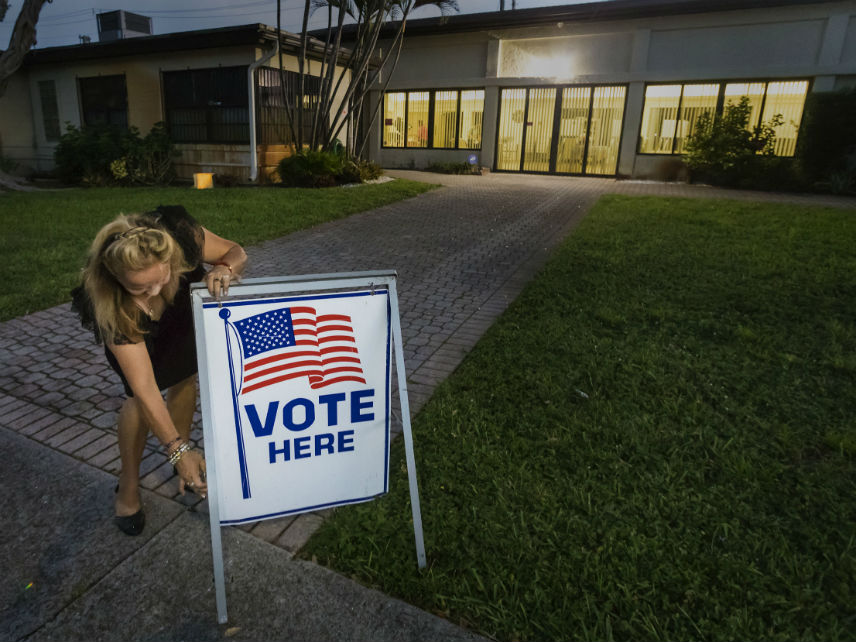A Florida Amendment Seeks to Restore Voting Rights to Ex-Cons Who've Paid Their Dues
If Amendment 4 receives 60% of the vote in November, ex-felons would see the right to vote once again.

Floridians heading to the polls in November can expect to see a voting rights amendment on their ballots.
Amendment Four, called the Voting Restoration Amendment, seeks to restore voting rights to those in the state who have been convicted of a felony and served the full length of their sentence, including probation, parole, and the payment of restitution.
There are exceptions, however. Those convicted of murder or sex crimes would still require permission via executive clemency. If the amendment receives 60% of the vote, it will be added to the Florida Constitution.
As it currently stands, ex-felons in Florida are ineligible to vote unless they receive executive clemency.
The restoration of voting rights has been a particularly difficult sell due to the political subtext. Last year, Virginia's Republican gubernatorial candidate, Ed Gillespie, released an ad criticizing his opponent's support for the restoration of voting rights after an ex-felon was found with child pornography. Roy Moore, the controversial Republican challenger in Alabama's 2017 senate race, made the accusation that Democrats were supporting the restoration of voting rights simply to help increase the votes against him.
The Sentencing Project has reported that the suppression of voting rights has effectively removed six million voters from the voting pool, and that black Americans are disproportionately affected. While black Americans hold diverse political opinions, Republican politicians who oppose reenfranchisement tend to assume they will vote exclusively for Democrats.
Support and disapproval transcend party lines, however. Sen. Rand Paul (R–Ky.) and fellow Republican Kentucky Gov. Matt Bevin have both worked in various capacities to secure the votings rights of ex-felons. (However, prior to Bevin's work, he reversed a last minute executive order made by Democratic predecessor Steve Beshear, which had restored voting rights en masse.)
As the National Constitution Center notes, the suspension of voting rights has faced several challenges in the Supreme Court, including Richardson v. Ramirez and Hunter v. Underwood. Opponents of disenfranchisment have been unsuccessful in their attempts at court, which is why they're banking on Florida's ballot initiative process.


Show Comments (76)